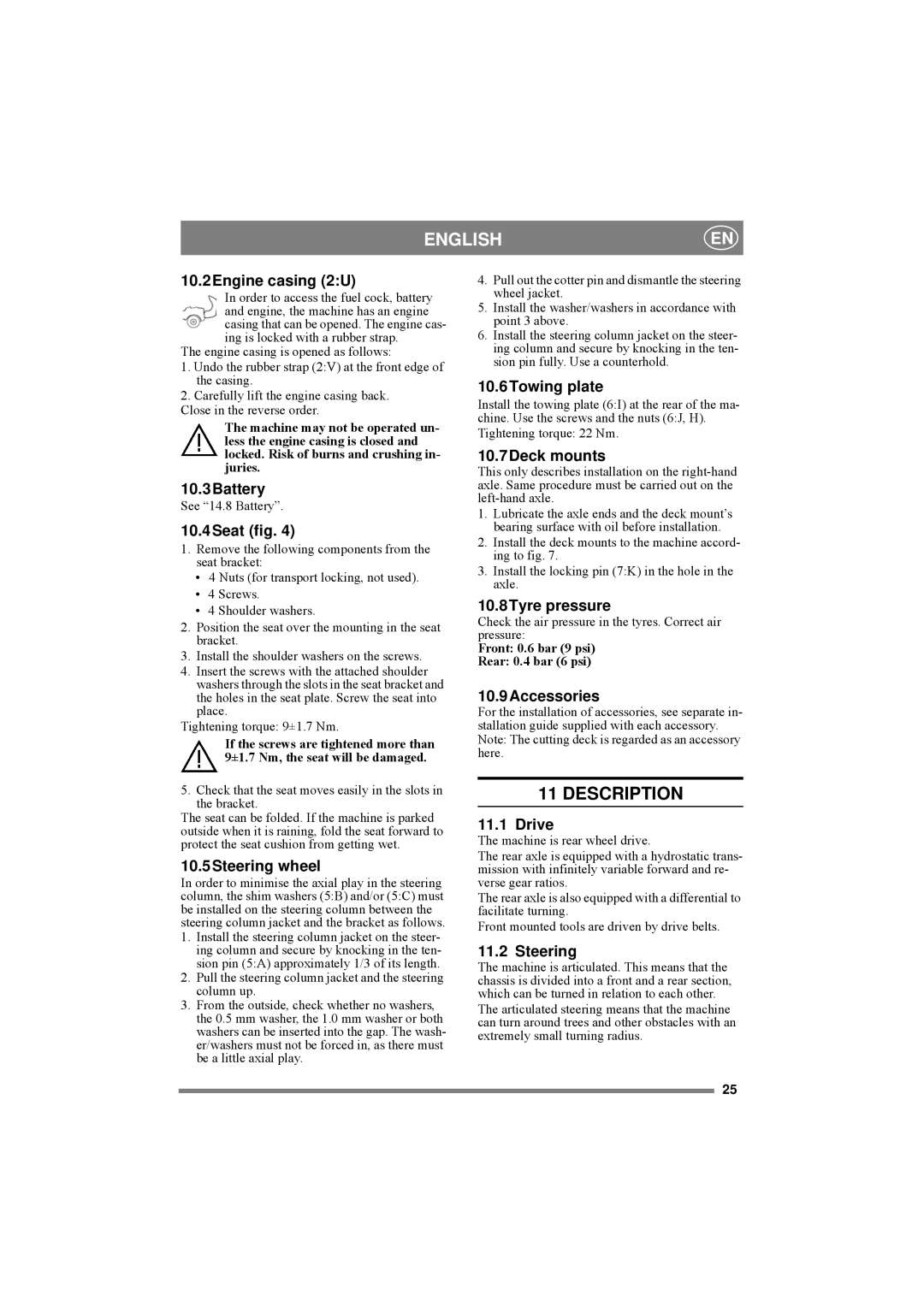8211-0072-80 specifications
The Stiga 8211-0072-80 is a cutting-edge lawnmower designed for homeowners who seek both efficiency and comfort in their gardening tasks. This model combines robust engineering with innovative technologies, making it a top choice for those serious about lawn care.One of the standout features of the Stiga 8211-0072-80 is its powerful engine. Equipped with a reliable four-stroke engine, it delivers excellent performance and longevity. The engine is designed for easy starting and low emissions, promoting a more environmentally friendly operation. The mower’s performance is complemented by a durable cutting deck, which allows for a wide cutting path, reducing the time needed to achieve a well-manicured lawn.
The cutting height adjustment system is another notable characteristic of this lawnmower. Users can easily modify the cutting height to their preferred length with a simple lever adjustment. This versatility means that the mower can adapt to varying grass types and seasonal growth, promoting healthier lawn conditions.
In addition to its performance features, the Stiga 8211-0072-80 incorporates user-friendly technologies that elevate the mowing experience. Its ergonomic handle ensures a comfortable grip, thereby reducing user fatigue during extended mowing sessions. The mower is lightweight, enhancing maneuverability, and allowing users to navigate around obstacles effortlessly.
Safety is also a key focus in the design of the Stiga 8211-0072-80. It comes equipped with a reliable safety brake system, which stops the blades almost instantaneously when released. This feature ensures that users can operate the mower with peace of mind, knowing that safety measures are in place.
Another advantage of the Stiga 8211-0072-80 is its innovative grass collection system. The model features an ample grass collector that minimizes the need for frequent emptying, allowing users to cover larger areas without interruption. This is especially beneficial for those with expansive lawns, as it enhances overall efficiency.
Furthermore, the Stiga mower is built with durability in mind. The robust materials used in its construction ensure that it can withstand the rigors of regular use while maintaining its aesthetics and functionality.
In summary, the Stiga 8211-0072-80 is a versatile and user-friendly lawnmower, ideal for homeowners seeking a reliable solution for their lawn care needs. With its powerful engine, exceptional cutting capabilities, ergonomic design, and safety features, it stands out as an excellent investment for efficient lawn maintenance.

